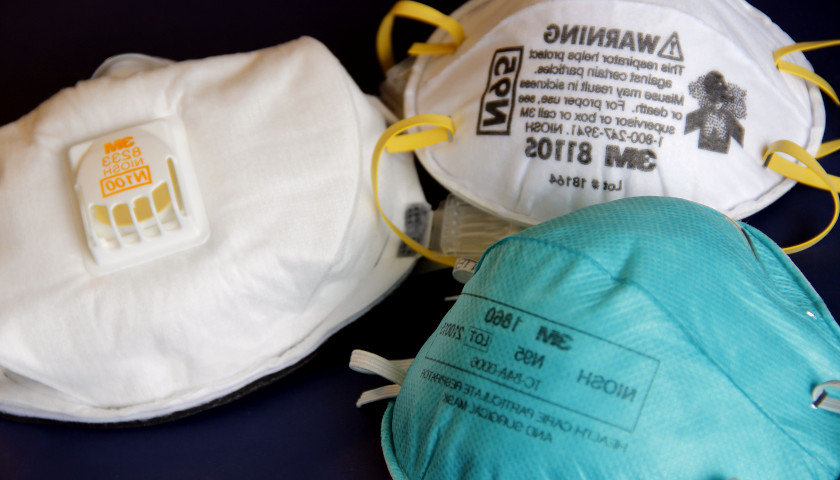by Catherine Smith
An estimated 1.5 billion disposable face masks will end up in the oceans this year according to a Hong Kong-based conservation organization.
OceansAsia based its estimate on 52 billion masks being manufactured in 2020 to meet the demand caused by the coronavirus pandemic. Their report also says that a “conservative” calculation means at least 3 percent of them will be washed out to sea.
“Single-use face masks are made from a variety of meltblown plastics and are difficult to recycle due to both composition and risk of contamination and infection,” the report says.
“These masks enter our oceans when they are littered or otherwise improperly discarded, when waste management systems are inadequate or non-existent, or when these systems become overwhelmed due to increased volumes of waste.”
The conservation group has been tracking the number of face masks washing up on a remote island south of Hong Kong since the pandemic started.
“About six weeks after COVID hit Hong Kong, so late February, we began finding masks, and lots of masks,” said Dr. Teale Phelps Bondaroff, Director of Research for OceansAsia. “What’s remarkable is we weren’t finding face masks before COVID.”
With each mask weighing three to four grams, the situation could lead to 6,800-plus tons of plastic pollution that “will take as long as 450 years to break down,” threatening fish and even polluting the air, according to the report.
In addition to the harmful effects of micro-plastic and nano-plastic particles, elastic ear loops pose a “possible entanglement risk for wildlife,” the report says.
The report cites several examples of marine animals killed by masks, including a “dead bloated pufferfish” found tangled in the loops of a disposable blue mask by volunteers cleaning a Miami beach in August.
“In addition, a necropsy on a malnourished penguin found dead on a beach in Brazil in September reportedly found a mask wadded up in its stomach,” according to The New York Post.
Britain’s Royal Society for the Prevention of Cruelty to Animals has been advising people to “snip the straps” of their masks before throwing them out, according to the report.
Restaurant restrictions have also led to the increase in marine plastic pollution, in the summary of findings Gary Stokes of OceansAsia noted “hygiene concerns and greater reliance on takeaway food has led to increased use of plastics, particularly plastic packaging,” and “a number of measures designed to reduce plastic consumption, like single-use plastic bag bans, have been delayed, paused, or rolled back.”
OceansAsia encourages people to use reusable, washable cloth masks “whenever possible.”
– – –
Catherine Smith reports for American Greatness.




